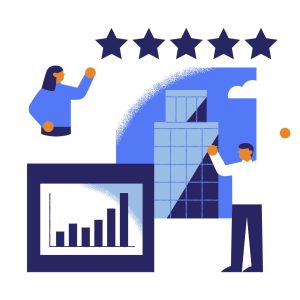August 5, 2024
Salesforce and the Power of Integration: Connecting Your Tech Stack
Introduction
In today’s fast-paced digital world, businesses rely on a multitude of software tools to manage operations, communicate with customers, and drive growth. However, these tools often operate in silos, creating inefficiencies and data gaps. Imagine the potential if all these tools could seamlessly communicate and work together, providing a unified view of your business. This is the power of integration, and Salesforce is at the forefront of this revolution. By connecting your tech stack with Salesforce, you can streamline operations, enhance collaboration, and unlock valuable insights. Let’s explore how Salesforce integration can transform your business.
Why Integration Matters
 Integration is the process of linking different software applications to function as a cohesive system. Here’s why integration is crucial:
Integration is the process of linking different software applications to function as a cohesive system. Here’s why integration is crucial:
- Enhanced Efficiency: Integrated systems eliminate the need for manual data entry and reduce errors, allowing teams to focus on strategic tasks.
- Improved Data Accuracy: Data consistency across platforms ensures that everyone in the organization is working with the same information.
- Better Decision Making: A unified data view enables more informed decisions, driving business growth.
- Seamless Customer Experience: Integration ensures that customer interactions are consistent and personalized across all touchpoints.
Salesforce: The Hub of Your Tech Stack
Salesforce is more than just a CRM; it’s a powerful platform that can connect with various tools and systems, making it the hub of your tech stack. Here are some key integration possibilities:
 ERP Systems
ERP Systems
- Integrating Salesforce with ERP (Enterprise Resource Planning) systems like SAP or Oracle allows for seamless data flow between sales and financial operations. This ensures that sales teams have real-time access to inventory, order status, and financial information, leading to more accurate forecasts and improved customer service.
Marketing Automation
- Tools like HubSpot, Marketo, or Pardot can be integrated with Salesforce to provide a unified view of marketing and sales activities. This integration helps in tracking campaign performance, managing leads more effectively, and personalizing marketing efforts based on comprehensive customer data.
Customer Support
- Integrating customer support platforms like Zendesk or ServiceNow with Salesforce ensures that support teams have access to complete customer histories. This leads to quicker resolutions and more personalized support, enhancing customer satisfaction.
 E-commerce Platforms
E-commerce Platforms
- Connecting Salesforce with e-commerce platforms like Shopify or Magento provides a seamless flow of customer and order data. This integration helps in managing inventory, tracking sales performance, and delivering a consistent shopping experience across channels.
Collaboration Tools
- Tools like Slack, Microsoft Teams, and Google Workspace can be integrated with Salesforce to enhance team collaboration. This ensures that communication is streamlined, and teams can work together more effectively on customer-related tasks and projects.
How to Integrate Salesforce with Your Tech Stack
Integrating Salesforce with your existing tools might seem daunting, but with the right approach, it can be a smooth process. Here’s how to get started:
Assess Your Needs
- Identify the key systems and tools that need to be integrated with Salesforce. Understand the data flow and how integration can improve processes.
 Choose the Right Integration Tools
Choose the Right Integration Tools
- Salesforce offers various integration tools such as MuleSoft, Salesforce Connect, and third-party connectors like Zapier. Choose the tool that best fits your needs and technical requirements.
Plan and Design
- Create a detailed integration plan outlining the systems to be integrated, data mapping, and the desired outcomes. Design the integration architecture to ensure scalability and flexibility.
Implement and Test
- Implement the integration in stages, starting with critical systems. Thoroughly test the integration to ensure data accuracy and seamless functionality.
Monitor and Optimize
- Continuously monitor the integration to identify any issues or areas for improvement. Optimize the integration based on feedback and changing business needs.
 Consider a mid-sized retail company that integrated its Salesforce CRM with its e-commerce platform and ERP system. Before integration, the company struggled with data silos, leading to inconsistent customer experiences and inefficiencies in order management. After integrating these systems, the company achieved:
Consider a mid-sized retail company that integrated its Salesforce CRM with its e-commerce platform and ERP system. Before integration, the company struggled with data silos, leading to inconsistent customer experiences and inefficiencies in order management. After integrating these systems, the company achieved:
- Unified Customer View: Sales, marketing, and support teams had access to complete customer histories, enabling personalized interactions.
- Improved Inventory Management: Real-time data flow between the ERP and e-commerce platform allowed for accurate inventory tracking and reduced stockouts.
- Enhanced Sales Performance: Sales teams could access up-to-date financial and inventory information, leading to more accurate sales forecasts and improved decision-making.
The integration resulted in higher customer satisfaction, increased sales, and more efficient operations.
Conclusion
In the digital age, the power of integration cannot be overstated. By connecting your tech stack with Salesforce, you create a unified, efficient, and data-driven business environment. This not only streamlines operations but also enhances collaboration, improves customer experiences, and drives growth. Embrace the power of Salesforce integration and transform your business into a cohesive, agile, and customer-centric powerhouse. Your journey towards a connected future starts now.
Written by: Meshach Dimka
Are you prepared to elevate your business to new heights and drive remarkable growth? Team up with DKLOUD, your trusted partner in crafting Salesforce solutions for scalable success. Begin your transformation journey today by reaching out to us at bam@dkloudconsulting.com or enquiries@dkloudconsulting.com

